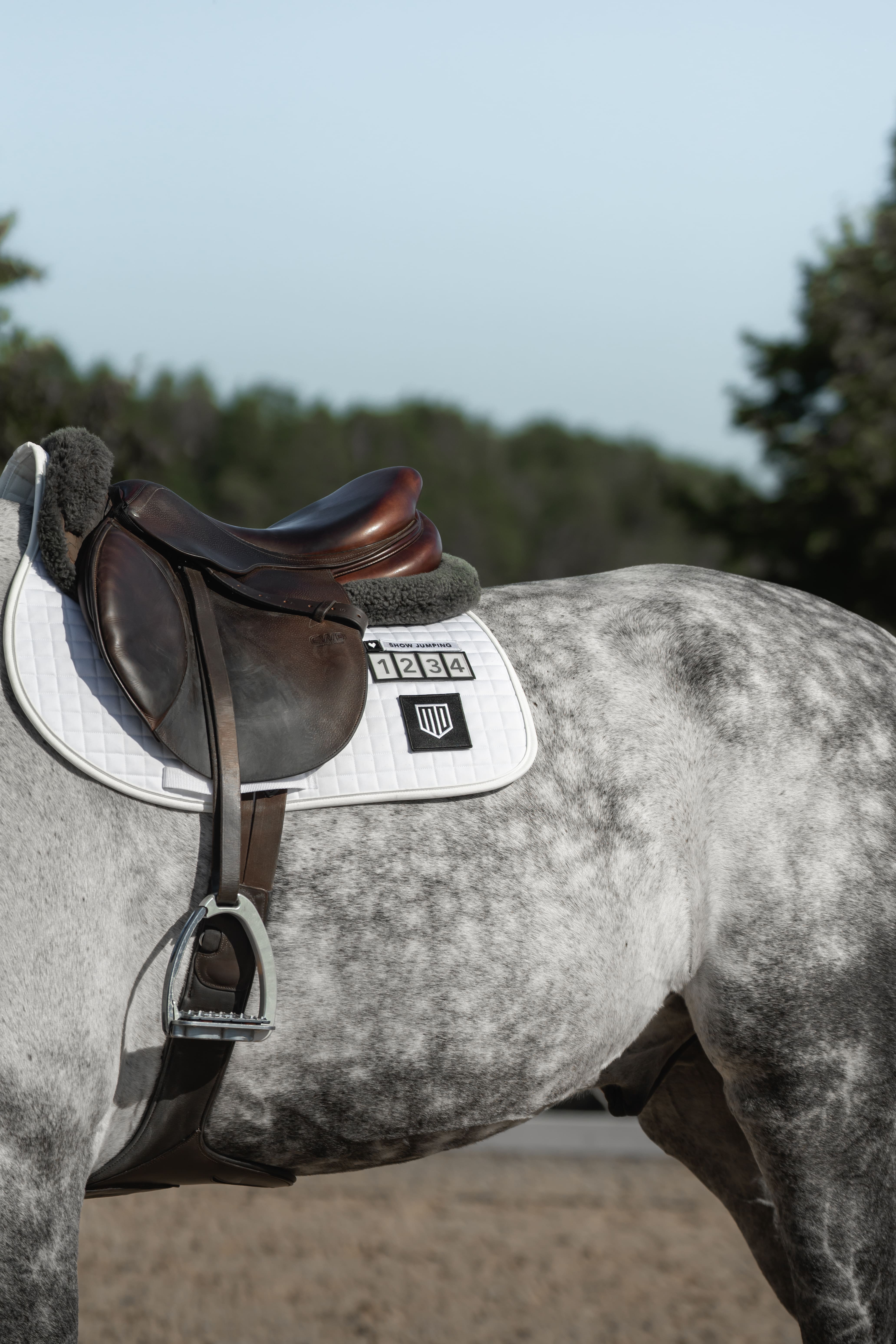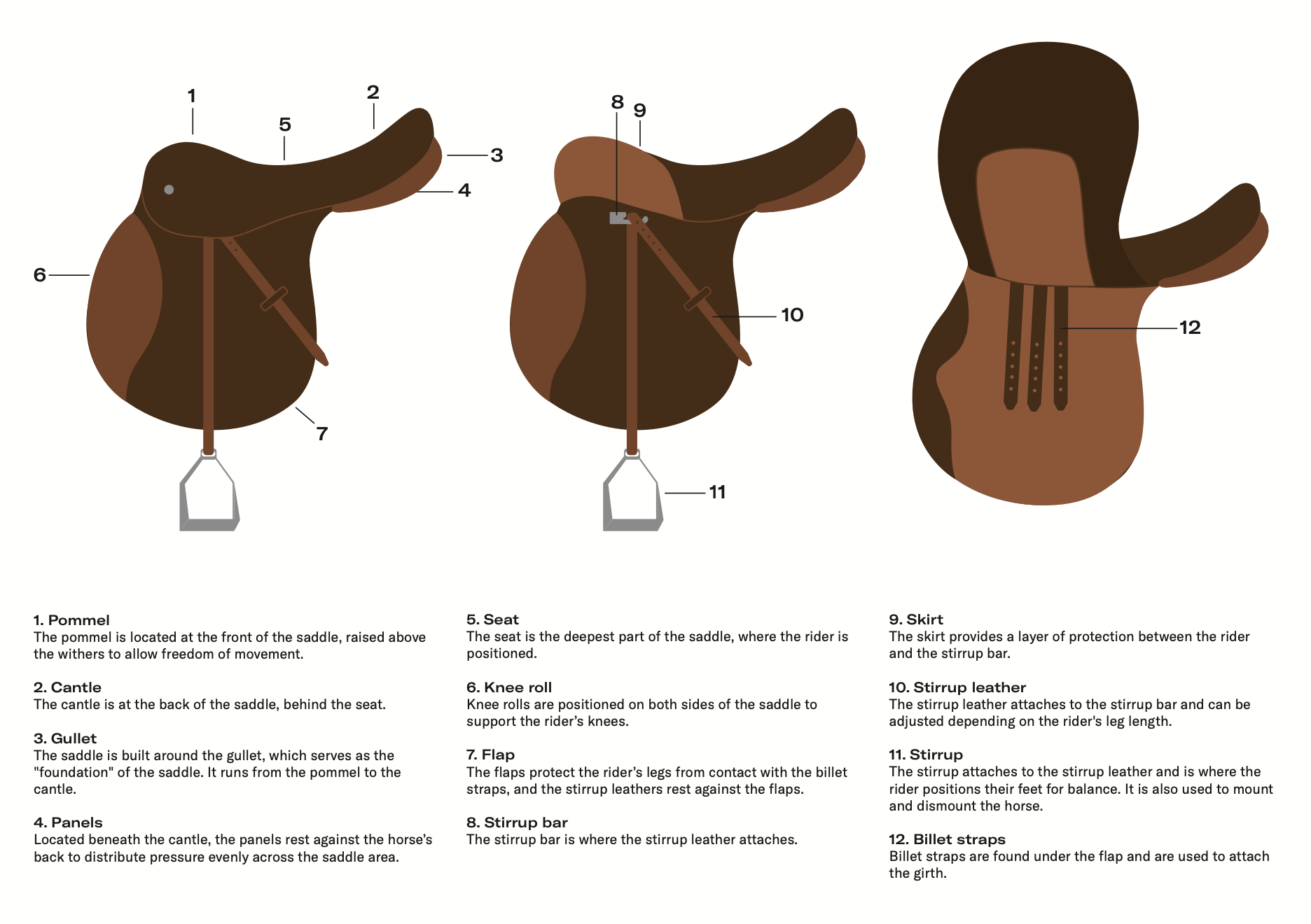Guide:
Parts of the Saddle
Learn more about the different parts of the saddle and the key differences between jumping, dressage, and general-purpose saddles.
Lovisa
Thu 14 Nov - 24

Guide:
Parts of the Saddle
Learn more about the different parts of the saddle and the key differences between jumping, dressage, and general-purpose saddles.
Lovisa
Thu 14 Nov - 24
In the first part of this article, we’ll dive into the main parts of a saddle and their individual functions. Our starting point is an English saddle with a traditional structure. Further down, you’ll find more information about the key differences between jumping, dressage, and general-purpose saddles.
1. Pommel
The pommel is located at the front of the saddle, raised above the withers to allow freedom of movement.
2. Cantle
The cantle is at the back of the saddle, behind the seat.
3. Gullet
The saddle is built around the gullet, which serves as the "foundation" of the saddle. It runs from the pommel to the cantle.
4. Panels
Located beneath the cantle, the panels rest against the horse’s back to distribute pressure evenly across the saddle area.
5. Seat
The seat is the deepest part of the saddle, where the rider is positioned.
6. Knee roll
Knee rolls are positioned on both sides of the saddle to support the rider’s knees.
7. Flap
The flaps protect the rider’s legs from contact with the billet straps, and the stirrup leathers rest against the flaps.
8. Stirrup bar
The stirrup bar is where the stirrup leather attaches.
9. Skirt
The skirt provides a layer of protection between the rider and the stirrup bar.
10. Stirrup leather
The stirrup leather attaches to the stirrup bar and can be adjusted depending on the rider's leg length.
11. Stirrup
The stirrup attaches to the stirrup leather and is where the rider positions their feet for balance. It is also used to mount and dismount the horse.
12. Billet straps
Billet straps are found under the flap and are used to attach the girth.

The equestrian sport consists of several disciplines, therefore a variety of saddles optimized for each discipline are available. Below, we explain the key differences between jumping, dressage, and general-purpose saddles.
Jumping saddle
The jumping saddle is designed to give the rider extra support in a forward seat. The thicker knee rolls support the knees, and the short flaps allow the rider to maintain leg contact even with shorter stirrups.
Dressage saddle
The dressage saddle has longer knee rolls and flaps to facilitate riding with longer stirrups, which enables the rider to get closer to the horse.
General-purpose saddle
The general-purpose saddle is, as the name suggests, a kind of mix between a dressage and a jumping saddle.
Learn the different saddle parts with our chart.